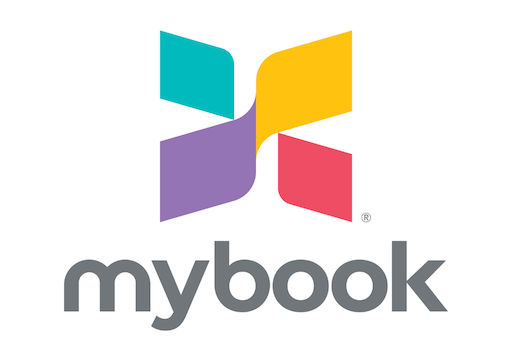Switch Google Analytics Consultant: Your Effortless Guide
Switching Google Analytics consultants can feel like a daunting task, but it doesn’t have to be. Whether you’re frustrated with your current setup, seeking fresh insights, or simply in need of a new perspective, making this change can be a pivotal decision for your business. In this guide, we’ll explore the step-by-step process of switching your Google Analytics consultant, ensuring you have a seamless transition that enhances your data analysis capabilities.
Assessing Your Current Situation
Before you leap into finding a new consultant, it’s essential to take a moment and assess your current analytics setup. Ask yourself the following questions:
– Are you getting the insights you need?
– Is the data being interpreted in a way that aligns with your business goals?
– Have you experienced communication issues with your current consultant?
Perform a quick audit of your existing reports to gauge if they align with your key performance indicators (KPIs). This step will not only clarify your needs but also provide a benchmark for evaluating potential new consultants.
Identifying What You Need
Once you have a clear picture of your current analytics setup, it’s time to identify what you’re looking for in a new consultant.
Focus Areas: Perhaps you need someone with deeper expertise in e-commerce analytics, or maybe you require assistance in setting up advanced tracking features like custom events or conversions. Reflect on aspects that include:
– Industry Knowledge: Does the consultant have experience in your specific niche?
– Technical Skills: Can they handle the technicalities such as tagging, setting filters, and tracking codes?
– Communication Style: Do they explain complex data analytics in layman’s terms?
Personal anecdote: When I switched consultants a few years back, I explicitly mentioned that I wanted someone who could break down the numbers for my non-technical team. It turned out to be a game changer!
Finding the Right Consultant
Now comes the fun part—finding the right person for the job. Start by networking within your industry. You can seek recommendations from peers or even join local business forums.
Online platforms like LinkedIn, Upwork, or specialized agencies are also goldmines for discovering professionals. Check their credentials and past work; many consultants provide case studies or testimonials that can give you insight into their expertise.
When reaching out, ensure to have a standardized list of questions covering the criteria you established earlier. For instance:
– “Can you walk me through how you approach Google Analytics implementations?”
– “What has been your greatest success in a previous engagement?”
The Transition Process
After selecting a new consultant, communication becomes crucial. Set up an initial meeting where both parties can outline expectations, timelines, and goals. This step can drastically improve the clarity of the collaboration ahead.
Data Transfer: Discuss how the existing data will be transferred to minimize disruption to your analytics. It’s best to set aside dedicated time for this phase. You don’t want to find out a week later that your data is disorganized or incomplete.
Make sure to take advantage of the new consultant’s expertise. Ask them what new features or metrics you can explore in Google Analytics that you weren’t utilizing before. By doing so, you’ll not only enrich your data-driven strategies but also build rapport and trust.
Analyzing the Results
Once your new consultant has been on board for a while, take the time to analyze the impact of their work. Keep an eye on the metrics that were identified during the initial assessment. Are you noticing improvements in your KPIs? Has the communication process improved?
Personal experience here: After switching consultants, I experienced not just an uptick in our website engagement but also a significantly better understanding of my audience.
Staying Agile
The digital landscape is ever-evolving, with data privacy regulations and algorithm updates constantly changing the game. Therefore, after switching Google Analytics consultants, it’s wise to maintain a culture of agility in your analytics strategy. Regularly schedule check-ins with your new consultant to fine-tune your tracking and analysis based on shifting priorities or new insights.
Switching consultants doesn’t have to be complicated. With the right approach and a clear focus on your objectives, you can ensure that the transition enhances your analytics capabilities rather than hindering them.
—
FAQs
1. How long does it usually take to switch to a new Google Analytics consultant?
The timeline can vary depending on the complexity of your current setup and how quickly you find a new consultant. Generally, expect the transition to take a few weeks, including communication, data transfer, and strategy sessions.
2. What costs should I anticipate when switching consultants?
Costs vary significantly based on the consultant’s experience and the scope of services you require. Budget for their hourly rates as well as potential setup fees or ongoing maintenance costs.
3. Can I manage Google Analytics myself without a consultant?
Yes, many businesses successfully manage Google Analytics on their own, especially with the help of online resources and tutorials. However, if your needs are complex, consulting an expert can provide more tailored insights and save you time.
Related Posts
Switch PostHog Consultant for Effortless Results
Switching your PostHog consultant could be the game-changer your business needs to unlock fresh insights and strategies. Embrace the opportunity for a new perspective, and let the right expert help you...
Switch Amplitude Consultant: Effortless Guide to Success
Unlock the potential of your business with a switch amplitude consultant, who can turn overwhelming data into clear, actionable insights. If youve ever wished for a better understanding of your customer...












